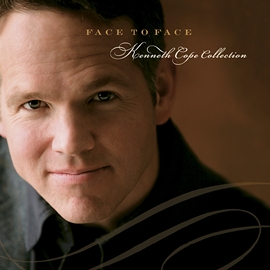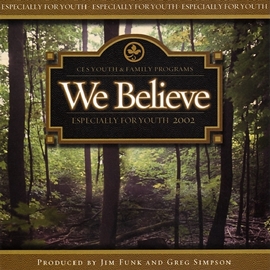(Continued from last week…)
Practice makes progress; Jesus makes perfect.
“…it is by grace that we are saved, after all we can do.”
 This phrase in 2 Nephi 25: 23, has been the cause of some curious thinking and interpretation among us in our Latter-day Saint culture and theology. See if this sounds familiar: ‘After we do everything in our power to be good and try to make it to heaven, then Christ will come along and take up the slack, doing that part that we can’t quite do ourselves.’ This is what I was taught as a youth (and have heard often since). I trusted my teachers back then and accepted the notion, until a broader reading of the scriptures, the reasoning of the Spirit of God, and my own life experience convinced me of its error.
This phrase in 2 Nephi 25: 23, has been the cause of some curious thinking and interpretation among us in our Latter-day Saint culture and theology. See if this sounds familiar: ‘After we do everything in our power to be good and try to make it to heaven, then Christ will come along and take up the slack, doing that part that we can’t quite do ourselves.’ This is what I was taught as a youth (and have heard often since). I trusted my teachers back then and accepted the notion, until a broader reading of the scriptures, the reasoning of the Spirit of God, and my own life experience convinced me of its error.
The Spirit of God brings with it a spirit of industry, and productivity. Speaking of the Church collectively, we are a people of action, a community of doers. So it is not surprising that we would latch on to the second half of the phrase and let that be our focus instead of the first half. We want to know what our part is, and that’s what we’ll give the majority of our thoughts, energy, and preaching to (we’ll discuss in a future post how we’ve also done this to our view of the sacrament). But are we missing the beauty of the gospel by focusing on us, rather than on Jesus?
It would be unwise for any of us to use this single scriptural phrase as the sole basis for our belief in the matter of our salvation without consulting the rest of scripture. All of the scriptures have to find harmony with each other if we are to see them in their true light.
Even in this chapter which surrounds “after all we can do,” we see that Nephi’s thoughts and focus are on Christ, not on Nephi. “After all we can do” appears almost as an afterthought. The thrust of Nephi’s message to his people (which includes their future posterity) is: ‘Christ saves us by His grace! And, notwithstanding our belief in Him and His salvation, we will still keep His commandments because He has asked us to, but He alone is our reconciliation to God, and in Him we will rejoice! Glory be to Christ!’
Another possible reason that we, as a people, might have come to focus more on “all we can do” is our fear of what might happen if we only focus on the saving grace of Christ. It is the tendency of the “natural man” within each of us to be attracted to that which is easy rather than that which is difficult. Therefore, the “saved by grace alone” teaching might potentially become the catalyst for many in the Church to rationalize and stop striving to keep their covenants. So to counteract that possibility, we stress and underline all we can do.
But, let’s look at the reality of it. Do any of us actually believe we can do all we can do? I know I can’t do it. Can you? Can our current President of the Church accomplish it? Was Joseph Smith able to do it? In fact, let’s go straight to the top. Did Jesus do all He could do? With the greatest respect and adoring love for Him, I propose to you that He did not. Consider it. Could not Jesus have ministered to one more person? Could He not have given up five more minutes of sleep to do one more good deed, or forgone one more bite of His meal to give away to someone who was hungry, or refused any kind of alone time in order to testify with His amazing spiritual power to more searching souls? Yes, He could have, but did not. Therefore, Jesus did not do all he could do. And if Jesus didn’t do it, then none of us here can do it either; so let’s get that notion out of our head (and let’s be nicer to ourselves when it comes to self-expectations). But then, we must ask why Jesus didn’t do all he could do, and what it was that He did do? Answer: Jesus did what He was led by His Father to do, whether in that moment, or during that day, etc. He did what He was supposed to do, according to His Father’s will.
What about you and me? Are we doing what God wants us to do today? That may be quite different from all we can do. Remember, every one of our lives has different seasons for different things. And it is our privilege to find out from our Father what our season is…what we are to focus on right now. None of us are like Jesus, but if we are patient, He intends to make us more and more capable…more and more in tune with the Spirit…more and more like Him in every way until eventually, we can do all He can do. Patience. I think that day is very far off!
Finally, here is the absolute truth: It is by the grace of our Savior, Jesus Christ, that we are saved unto eternal life; and it is also by the grace of Christ that we can do anything at all down here, let alone all we should do!
Therefore, I will talk of Christ, I will sing of Christ, I will rejoice in Christ, I will preach of Christ, I will testify of Christ, and write according to my testimony, that my eternal brothers and sisters on this earth (and those in the world of spirits) may be reassured as to what source they must look for a remission of their sins, as well as their only hope for life eternal!
(to be continued…)































I think the reason most people misunderstand 2 Nephi 25:23 is because we have learned in our culture to recognize the word “after” as part of a logical sequence of events. We have forgotten that the phrase “after all” has a very different meaning that was popular in Joseph Smith’s day. According to Webster’s 1828 dictionary, it signifies “when all has been considered, said or done; at last; in the final result.” We sometimes use this phrase in today’s world when we give a reason for our unexpected actions. “After all, you are my friend”. This fits very well with the context of the rest of Nephi’s presentation in 2 Nephi 25. Adding the words “we can do” only makes this reference more specific.
Even when we consider “all we can do” we are still saved by Grace. That’s why we must preach and testify of Christ so our children will know where to look for salvation.
BEAUTIFUL, Brian! Thanks for this great insight. This is the way I read it in my heart, but having the 1828 definition of the phrase “after all” gives the idea more credibility, and like you said, keeps the specific focus on Christ, not us, which is where Nephi feels it should belong. :)